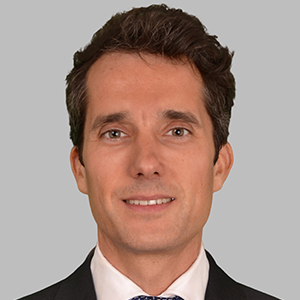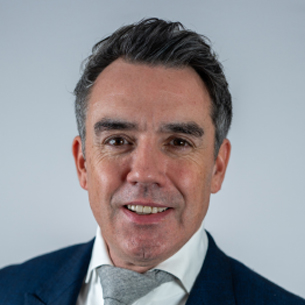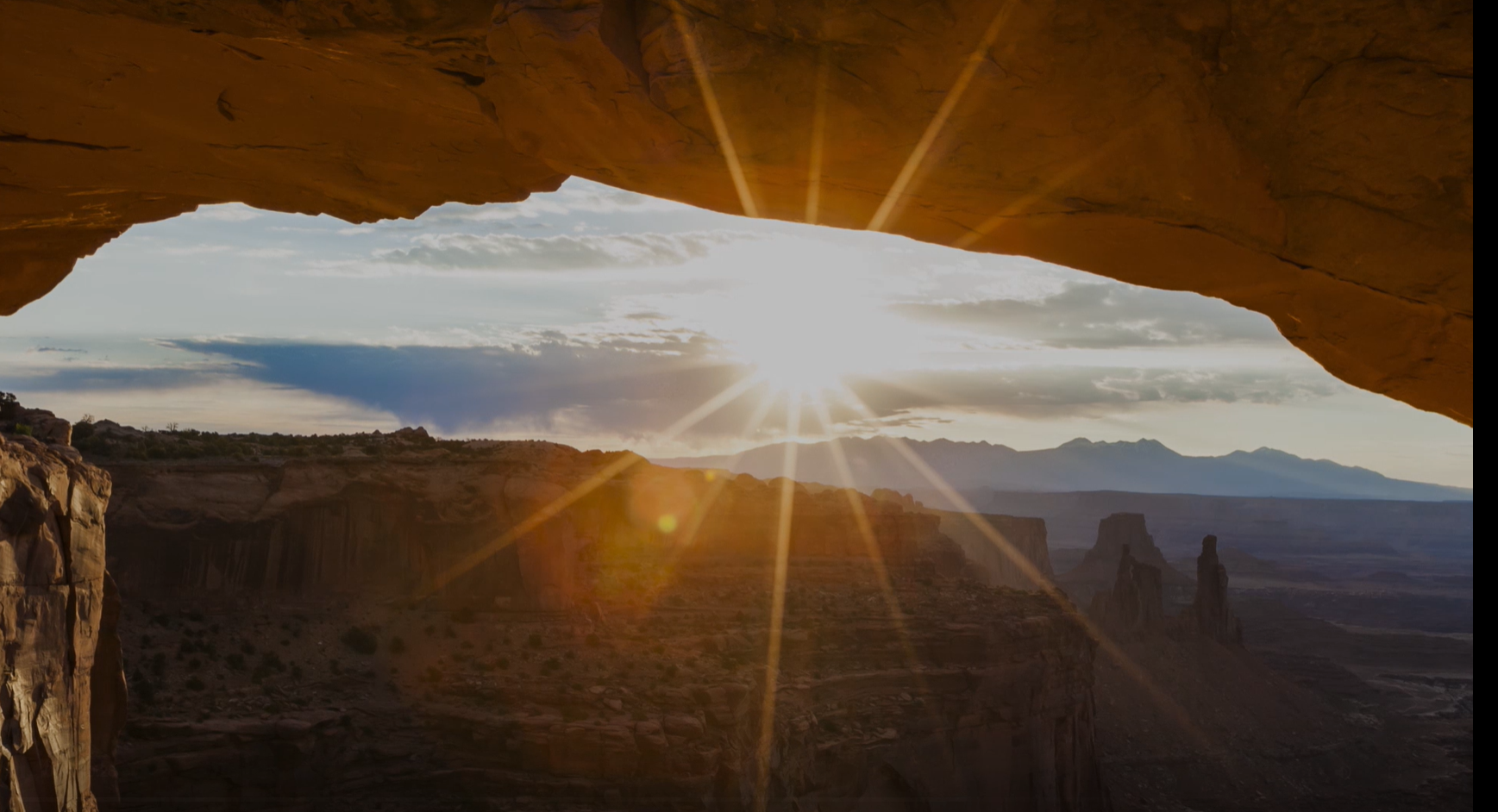Stephane Etroy Interviews SLR Consulting CEO Bradley Andrews

Stephane Etroy

Bradley Andrews
Stephane Etroy: Could you tell us about SLR Consulting Limited (“SLR”)?
Bradley Andrews: SLR is a global sustainability consulting company with a strong collaborative and entrepreneurial culture that provides technical consulting and strategic advisory services to our clients on how to progress their tactical plans and achieve objectives around environmental, social and economic factors. To us, that's what sustainability is, the triple bottom line of balancing the needs of the environment with the needs of society and the community, with the fundamental truth that they must have positive and predictable economic outcomes. At the heart of it, we’re nearly 5,000 people operating around the globe: scientists, engineers, economists, strategists, data modelers, technicians, project managers and passionate experts who work across sectors to help our clients create tangible sustainability outcomes for today and ensure their company is protected for tomorrow.
SE: The sustainability consulting industry has been – and continues to – rapidly evolve. How have you been able to stay on top of the everchanging landscape and what have been your greatest learnings?
BA: There is a growing realization in society of the magnitude of the challenges we face regarding the sustainability of the planet and the life that exists on it. While these challenges are urgent and ubiquitous, the critical decisions and impactful actions needed from both governments and businesses has not yet come to bear. For example, the energy transition – the shift from high-carbon to lower-carbon alternatives – remains an ongoing challenge in terms of finding the right balance of energy security, affordability and carbon intensity. Similarly, the conservation of natural capital – such as soil, water, ecology, flora and fauna – requires our attention as these are the elements that sustain human life. Responsible sourcing and the re-mapping of supply chains in the new-world trade order is an imminent and significant challenge that will require us to mobilize effective capital to tackle them. We have learned that disciplined focus on finding realistic implementable solutions with clear mechanisms to measure impact is the only way to achieve outcomes.
Obvious volatile factors such as geopolitics, subsidies and regulatory shifts continue to impact our clients’ operations and plans in the short to medium term. The advice we give to our clients in this era on volatility and uncertainty is not to be swayed by the hyperbole. Instead, we advise our clients to trust the expert technical knowledge and science-based facts to provide transparent decision making. You might not get it 100% right, but you're not going to get it wrong.
SE: What major trends do you see shaping the industry in the next 5 years?
BA: I would separate the trends into three groups: unstoppable trends, sectoral shifts and pendulum swings.
The unstoppable trends include energy transition, decarbonization, climate resilience and adaptation, natural capital, sustainable supply chains, circularity and social progression which will persist as global, long-term challenges until breakthrough technology advancement can be achieved. While the impact and response to these challenges may differ across sectors or regions, the risk is ubiquitous and perpetual. For these trends, we must stay resolute in our long-term strategy.
Sectoral shifts could be regional or industry-wide and are based on near-term effects of macroeconomics, geopolitical shifts or a change in medium-term environmental factors. Examples include (i) Russia-Ukraine and its impact on renewables versus traditional energy sources in Europe, (ii) extreme weather events reshaping priorities around carbon, water, soil or infrastructure in the medium-term, or (iii) the impact of new technologies on supply chains, such as the demand for critical minerals for EV batteries. These shifts require a change in strategy and tactics and therefore staying close to market drivers and incentives, shifts in public sentiments and client business environments are critical.
The last trend in my view is the hardest to navigate as it is volatile, uncertain and difficult to predict. These are pendulum swings driven by geopolitical changes, such as conflicts that disrupt the global order or, more recently, the frequent shifts in government philosophies worldwide. This volatility makes it difficult for businesses to respond, creating an environment in flux filled with both risks and in some cases, tremendous opportunities.
SE: Can you discuss some of the most significant sustainability challenges your clients are facing and how SLR is helping them address these issues?
BA: I think Boards and CEOs are really having a hard time given pressure from outside groups, internal stakeholders, shareholders and regulators. Oftentimes this pressure is not always in the same direction and causes a lot of dichotomous information and competing priorities. In the market, we are seeing companies retreat from initiatives such as carbon reduction goals or diversity programs. There is a growing crisis of confidence in the value that a commitment to ESG may provide as they have realized some activities could be seen as virtue signaling. Perhaps they had plans that were set in motion without a clear path to execution or clear business benefit, or they also could be taking a short-term view on market dynamics and business performance.
In terms of how we address these, fundamentally, we want to help clients focus on the triple bottom line and together figure out not only the why and the what, but the how and the who, and give them the confidence that they're making the best decisions across all three of those elements. That’s what SLR does. We partner with clients to provide strategic advice to shape decisions and we remain involved throughout the execution, including providing on the ground support to ensure meaningful impact. The most important conversations I have with our clients now is them asking “what should I do?” My advice: stick to good business basics driven by good facts, good science, robust planning and most importantly, ensure there is monitoring and accountability in execution - if you do that, then your strategy will be robust and impactful through these volatile times.
SE: SLR had a great year for M&A in 2024, most notably with its acquisition of Malk Partners in the US and Wardell Armstrong in Europe. What was the strategic rationale behind these acquisitions?
BA: It is true that we have been aggressively pursuing attractive acquisitions, but we are very disciplined and strategic with our approach, and we believe Ares plays a big part in helping us do that. We understand that the flow of capital enables the flow of resources, energy, water, food and information to society. With our acquisition of IBIS Consulting in 2023, we have exemplary expertise and capabilities in sustainable finance for multi development banks and financial institutions in emerging markets. As we moved forward, we were seeking a ‘Ying’ to that ‘Yang’ in the private markets, which is where Malk came in as a true market leader in private capital deploying responsible finance investments. Not only did it provide us with enhanced strength in finance advisory, it has opened us up to a new market within private equity and their portfolio companies in the financial centers of the world, namely New York and London. Strategically, Malk is a great fit and we are thrilled at the cultural alignment and collaboration across Malk, SLR and Ares in the early days of the merger.
Wardell Armstrong was slightly different. Their work was remarkably similar to the work SLR was already focused on, so it built off a core strength, leveraging operational efficiency and a business depth in one of our biggest markets in Europe where they operate in similar, but not overlapping, markets. It was also a great cultural fit of like-minded people who are just as equally enthusiastic and mission-driven as the SLR team. We were confident our cultures would mesh, and we would benefit from micro synergies because people in our business like to collaborate with other smart people and so it happens naturally.
We're fortunate to be able to say that less than a year in, our hypotheses are playing out. Malk has taken us into new markets, and the collaboration with Wardell Armstrong is already evident.
SE: How is the integration of these new teams and capabilities impacting SLR’s service offerings and relationships?
BA: Our clients have reacted extremely positively to the enhanced capabilities and support we’re able to provide through these strategic combinations.
By way of example, Malk was used to collaborating and providing advice around, for example, environmental and sustainability transaction due diligence or portfolio management with a sustainability lens. But now there are nearly 5,000 scientists and engineers behind Malk which allows them follow through with clients on the technical work - taking it from the why and the what, to the how and the who. Our clients have been really, really excited by that; knowing they can continue to work with familiar Malk colleagues every day and that behind that core team there's a wealth of capabilities able to unlock all the things that they want their portfolio companies to do, or they want to dig into themselves. We not only can provide that as a holistic solution, but also as a ‘mix and match’ approach depending on what expertise the client needs. The clients I've spoken to around the partnership with Malk have quickly recognized the strategic value and the expanded offerings. As we deliver on our promises and provide impact to the client quickly and efficiently, we will build long-term trust and relationships.
SE: Since joining SLR as its CEO in 2023, what has been the most rewarding aspect of the role?
BA: For me, it will always be promoting people into new roles and watching them grow, develop as leaders and ultimately succeed. We are a big enough company where we can move people around the world and put them into new roles to gain new experiences and empower them to expand their leadership potential. When individual success pays off, it only benefits our business and helps ensure strategic optionality for SLR’s continued success.
It is an honor to be CEO of SLR and I enjoy the breadth and diversity of our business across regions, cultures, industry and expert capability.

